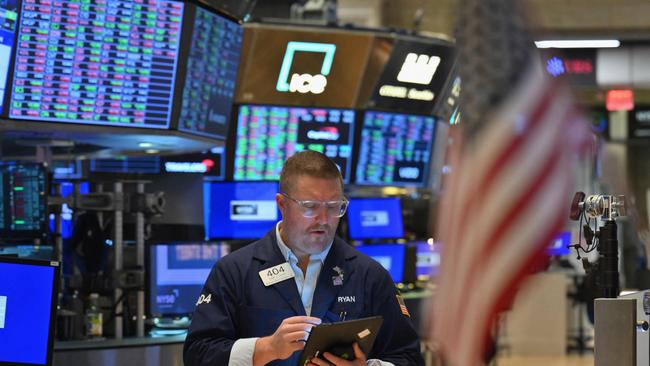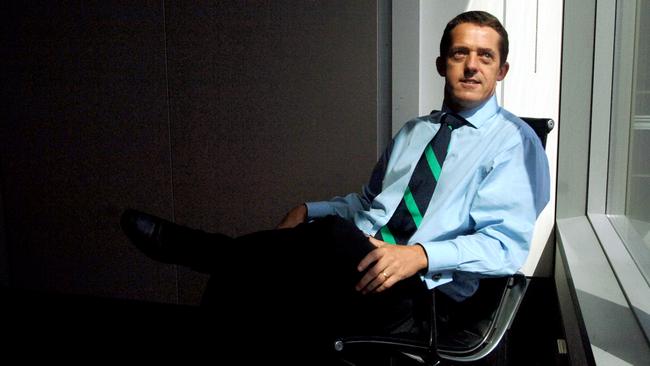Schroders’ Martin Conlon says healthcare sector best placed to benefit from AI
Global asset manager Schroders says investors need to dig deeper to find stocks left behind in the current rally, identifying two areas of opportunity for those looking to take advantage of AI.

Investors looking for stocks with attractive valuations and solid returns should look to Australia’s health and commodity sector, global asset manager Schroders says, adding that much of the sharemarket is fast becoming overpriced.
After a 10 per cent rally on the ASX 200 in the past six months, Schroders head of Australian equities Martin Conlon says investors need to look deeper to find opportunities that have been left behind in the rush.
Mr Conlon said while everyone including BHP, which made a failed bid for Anglo American, was caught up in copper, Schroders was instead looking at aluminium, which had not seen any substantial price movements in two decades.
“High copper prices won’t produce more. It will just ration it to the highest bidder. In order to solve those problems, we’re going to need technologies and ways to use things like aluminium to solve the problem,” he told financial advisers at a Schroders roadshow in Brisbane.
Mr Conlon said Alumina, South32 and Rio Tinto all stood to benefit from any pivot from copper to aluminium, which was 30 per cent lighter than copper.
“When commodity prices have been flat … we can buy companies that are trading at less than the replacement cost of the assets today. In a world that’s deglobalising, that is pretty attractive,” he said.

Schroders also saw healthcare favourably, with it set to benefit from artificial intelligence. Sonic Healthcare, Healius and Ramsay Health Care were rated appealing over Cochlear, ResMed and CSL, which Mr Conlon said were “amazing companies” but also expensive.
“Radiology is one of the few really good use cases we can find for AI,” he said.
“And interestingly, where data sets are massively valuable in this context rather than so much the technology over it.
“We think that owning big data sets in pathology and radiology will be a massive asset, and Sonic is one of the biggest in the world, one of the biggest pathology companies and in relative size at $12bn.
“It’s nothing for one of the largest companies in the world.”
Schroders has the view that pathology plays a key role in preventive health, with Australia spending very little on it compared to money spent on the sick.
“It is absolutely insane. And when it comes to productivity gains, we think it’s one of the most logical spins,” Mr Conlon said.
WiseTech Global, which has rallied more than 30 per cent this year, was signalled out by Mr Conlon as a company that was overvalued despite receiving plenty of love from ASX investors.
Buying the stock at its current market capitalisation of $33bn and hoping to make a 10 per cent return required WiseTech to make $3bn a year forever, which even at a margin of 50 per cent required revenue of $6bn, something he said could take 15 years when it only makes $1bn in revenue and a profit of $300m.
“That margin is higher than most of the Magnificent Seven stocks,” Mr Conlon said.
“The price at some stage the company needs to mature and trade on sensible multiples. And therefore even if it makes $3bn forever, you bought all that prior to today’s price. That is why it is important to think in bets and probabilities.”
With valuations challenging and making stocks not as cheap as they once were, Mr Conlon said a diversified portfolio was what investors should be looking at, adding that it was lower risk than benchmarks, which are heavily skewed to banks and miners.
“We’re fishing mainly in the contrarian, less popular ponds,” he said. “The benchmarks are always dominated by yesterday’s winners.”
Schroders expects that deflationary forces are in the past, with government spending at a time of declining workforces. Mr Conlon said consumption was likely to be more challenging with retailers being affected by a pullback in consumer spending.
Global markets have been buoyed since the end of last year on optimism that interest rate cuts are on the horizon as well as other factors including AI and strong gains seen from the “Magnificent Seven” stocks, which include Microsoft, Tesla, Apple and Nvidia. Mr Conlon said not only did those companies have staggering valuations, but they now also dominated global indices.
“The Magnificent Seven have more weight than the benchmarks in the UK, China, France and Japan,” he said.
“About 70c in the dollar in every global equity portfolio is in the US at the moment, and about 30c or 40c off that 70c in the Magnificent Seven. That is a pretty alarmingly distorted picture of the world in my view on the one that’s unlikely to be matched by economic reality.”




To join the conversation, please log in. Don't have an account? Register
Join the conversation, you are commenting as Logout